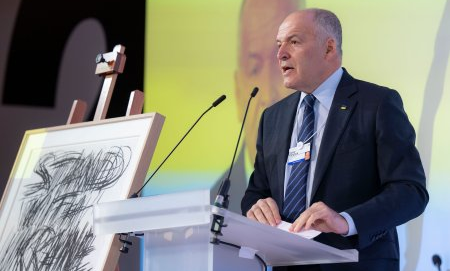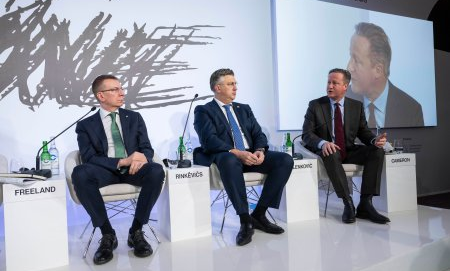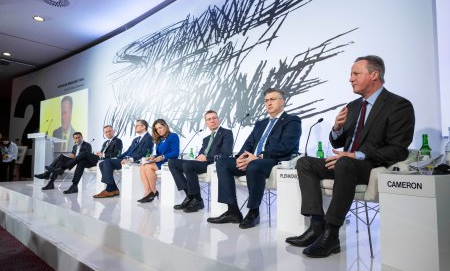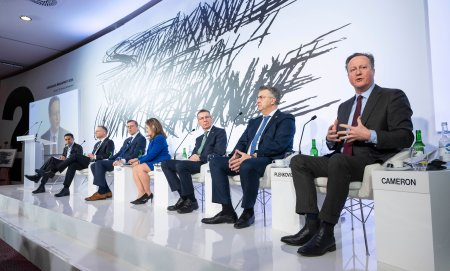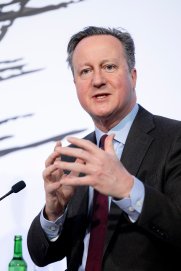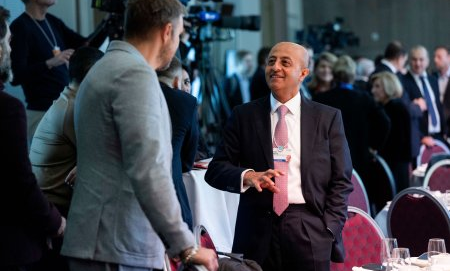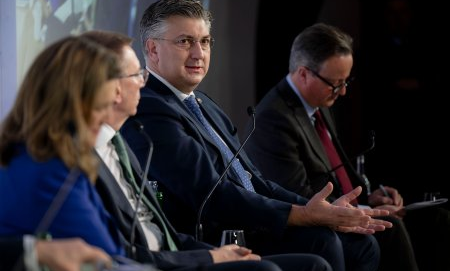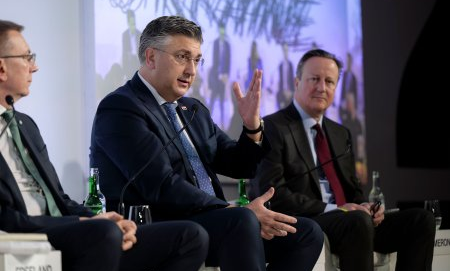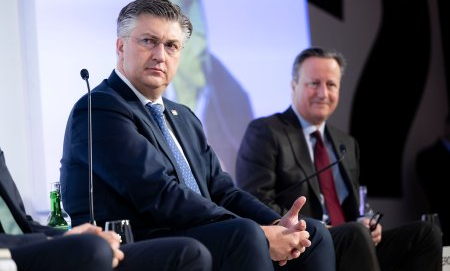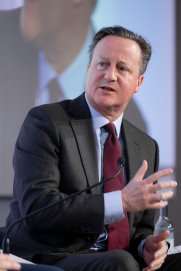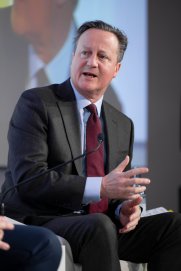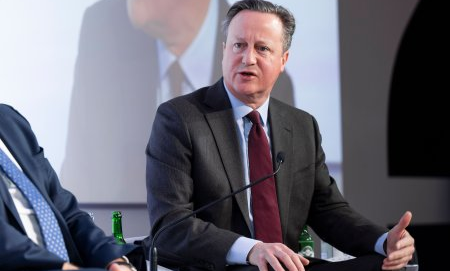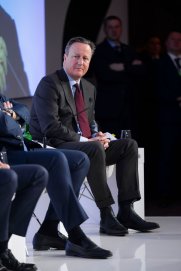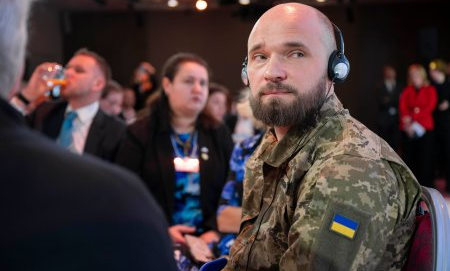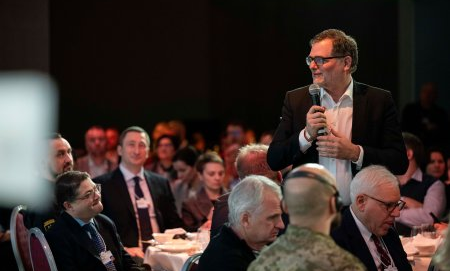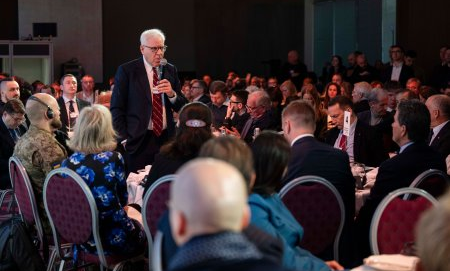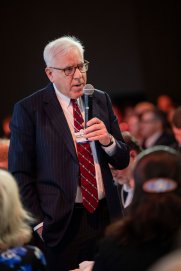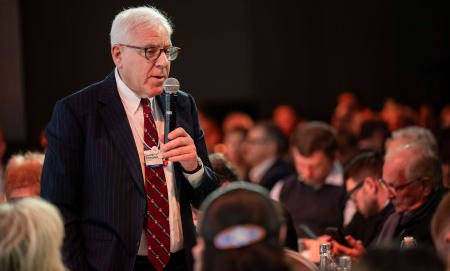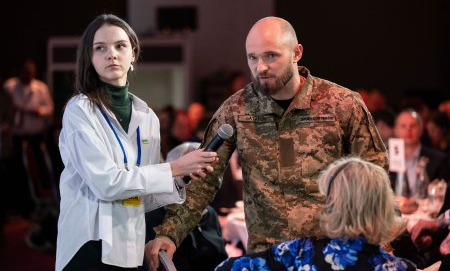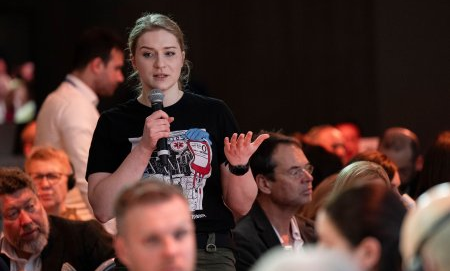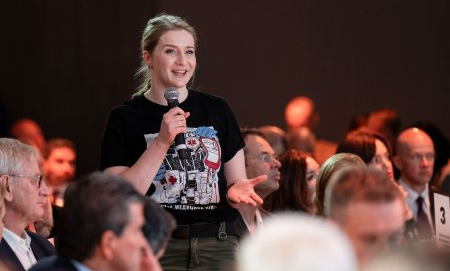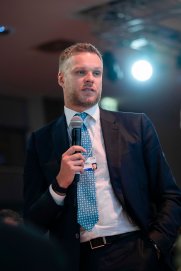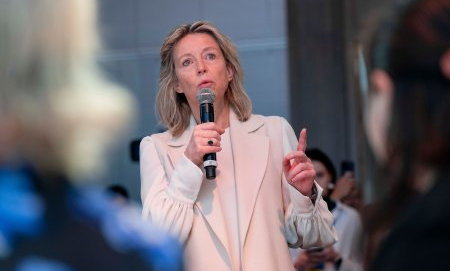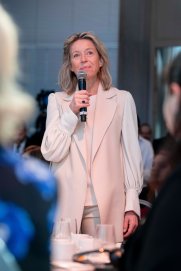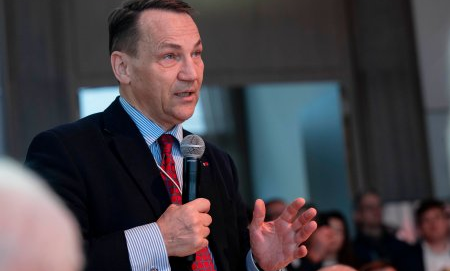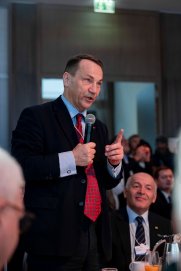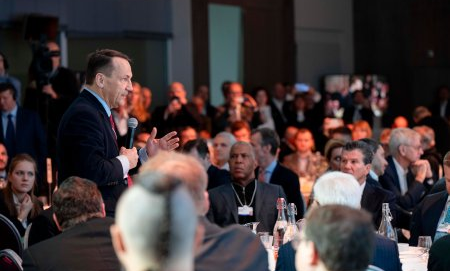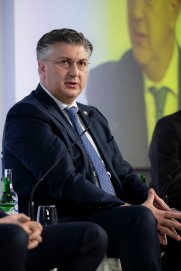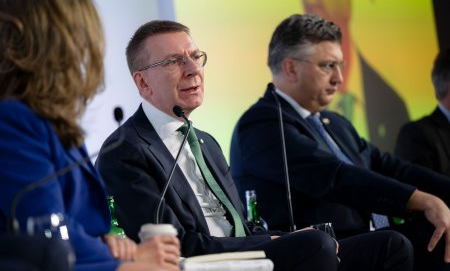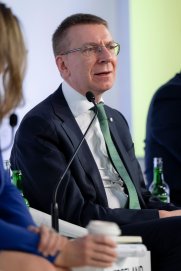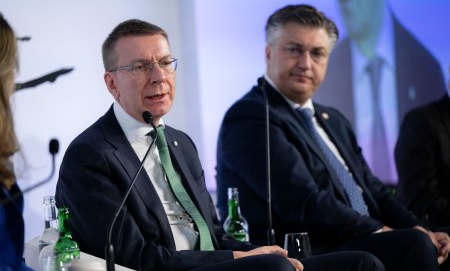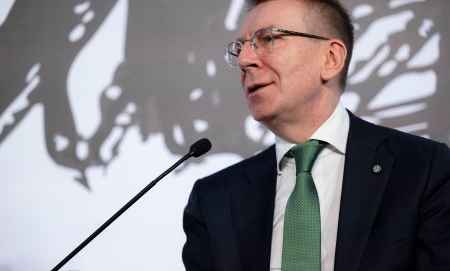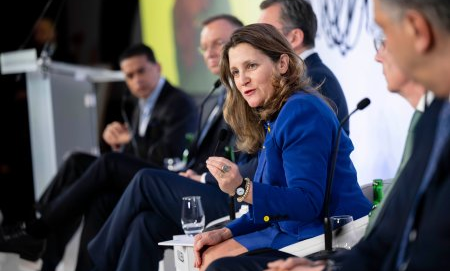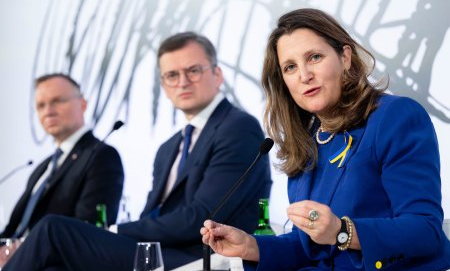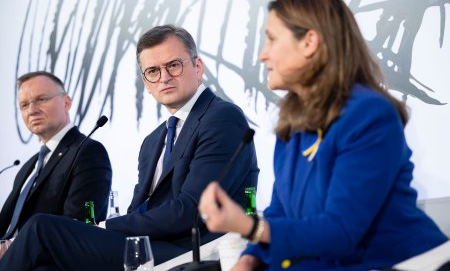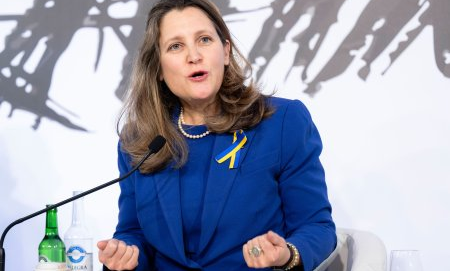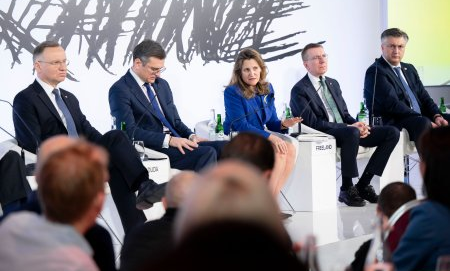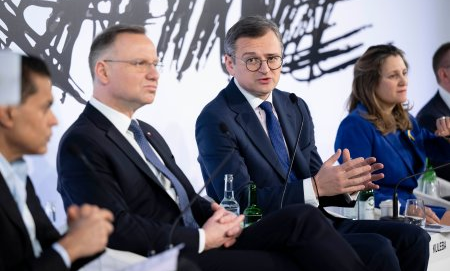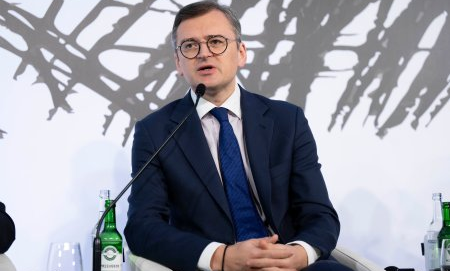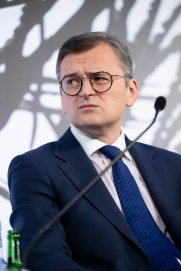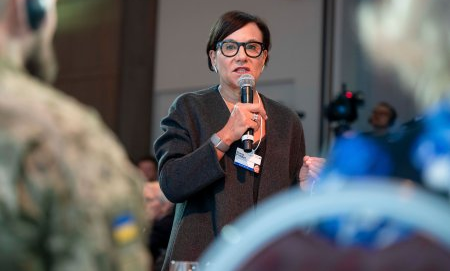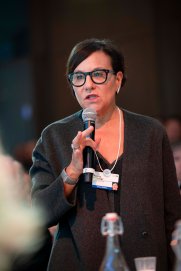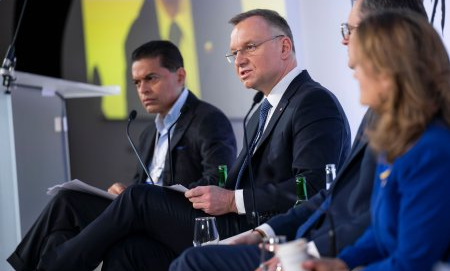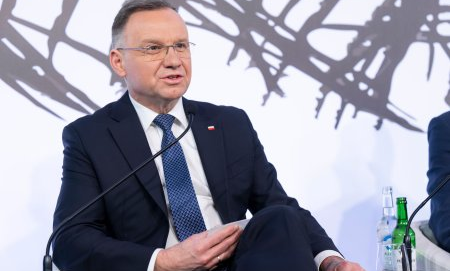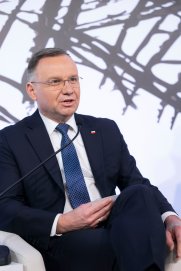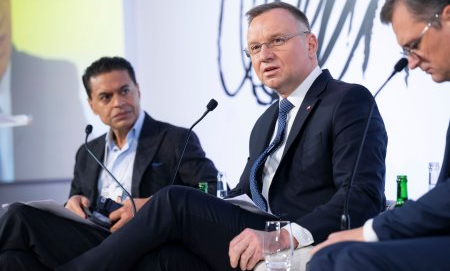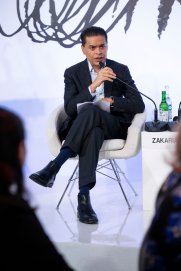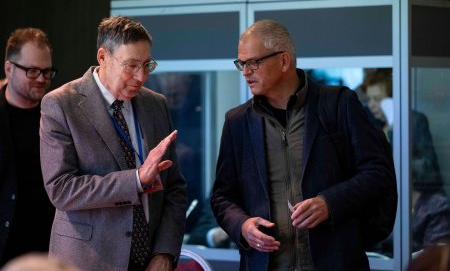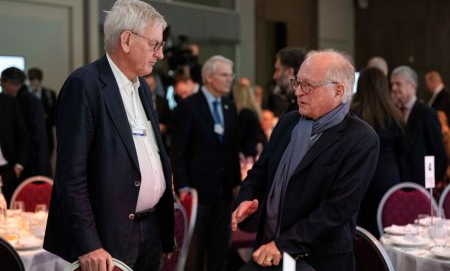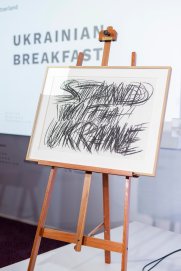Davos Ukrainian Breakfast: NEWS
The Victor Pinchuk Foundation hosts the traditional Ukrainian Breakfast Discussion on the occasion of WEF in Davos
On 18 January, 2024, in Davos (Switzerland), the Victor Pinchuk Foundation and international investment advisory group EastOne, hosted the Ukrainian Breakfast Discussion, their traditional private event organized on the occasion of the World Economic Forum (WEF). The topic of the discussion was Stand with Ukraine?
The discussion explored scenarios for the future of Ukraine and its allies in the fight against Russian aggression. Global political leaders, thinkers and activists discuss key aspects of Ukrainians’ defense of life and freedom and it offers a chance to revisit what is at stake in Ukraine.
Among the speakers of the discussion were The Right Hon Lord Cameron, Secretary of State for Foreign, Commonwealth and Development Affairs; Andrzej Duda, the President of the Republic of Poland; The Honourable Chrystia Freeland, the Deputy Prime Minister and Minister of Finance of Canada; Dmytro Kuleba, the Minister of Foreign Affairs of Ukraine; Victor Pinchuk, Founder of EastOne and Victor Pinchuk Foundation; Andrej Plenković, the Prime Minister of the Republic of Croatia; Edgars Rinkēvičs, the President of the Republic of Latvia.
The following attendees contributed to the discussion: Espen Barth Eide, the Minister of Foreign Affairs of the Kingdom of Norway; Gabrielius Landsbergis, the Minister of Foreign Affairs of the Republic of Lithuania; Kajsa Ollongren, the Minister of Defence of the Kingdom of the Netherlands; David M.Rubenstein, Co-Founder and Co-Chairman of The Carlyle Group; Radosław Sikorski, the Minister of Foreign Affairs of the Republic of Poland; Wolfgang M. Schmidt, German Federal Minister for Special Affairs and Oleksandr Batalov, Gunner-medic, Armed Forces of Ukraine. Fareed Zakaria, host of Fareed Zakaria GPS on CNN, moderated the discussion.
In his opening speech, Victor Pinchuk called on Ukrainian allies for faster supplies of weapons: “When at war, it doesn’t matter if you did a lot. What matters is if you did enough for victory. Will our international partners produce and give enough weapons to push out the aggressor? Right now, amid substantial deliveries and all statements of support, a big answer hides - no. Ukraine doesn’t have enough weapons to win, and time is running out.”
“International partners must take strong decisions to provide all of the weapons needed as fast as possible. Otherwise, it’ll be too late. We are at a critical point,” Victor Pinchuk added.
“The year 2024 will be the moment of truth. The result will depend on the decision that our international partners are making now, or will make in the coming weeks or a month at maximum,” he stressed.
Andrzej Duda said: “Now we are facing the rebirth of Russian imperialism in its bloodthirsty version. Putin has decided to set the world on fire, beyond any doubt.”
“As the war in Ukraine continues, we are witnessing the rise of the coalition of evil, which is not only favorable to Putin, but is also ready to take action and ruin the global order,” Andrzej Duda added.
“If Putin prevails in Ukraine, it will send a clear message to the entire world, and all his supporters, to ramp up actions aimed directly against the West. We should bear this in mind whenever we hear the talks about fatigue with the war in Europe. This is exactly what the rulers in the Kremlin are counting on - our fatigue,” he warned.
Andrzej Duda stressed that Russia would not stop at Ukraine if it succeeds in its ambitions: “Russia will not stop on Ukraine. Other countries in Central Europe, Caucasus or Central Asia might become Russia’s next victims. This is absolutely crucial. I’m absolutely sure that if Russia wins this war, it will attack another country.”
Chrystia Freeland emphasized that the successful Russian invasion is not only Ukraine’s problem. This is a danger to everybody. “We need to realize that this is a threat to us all. It’s a threat, because a successful Russia is a danger to everybody.”
“Let’s not think that somehow this is a Ukraine’s problem. This is a problem for us all,” Chrystia Freeland stressed.
Edgars Rinkēvičs picked up this line, saying: “We also need to be prepared for hybrid warfare. We see that Putin’s ally Lukashenko uses migration as a hybrid weapon against us, Poland and Lithuania. We see constant disinformation. Furthermore, we now see the attempts to use new technologies like AI, and cyber warfare. And, of course, the language is getting much more threatening.”
“Unfortunately, we are always one or two steps behind Putin. He finds the ways to attack us, and we find the ways to counter these attacks but we need to be more creative. We have to understand that this guy is playing without any rules,” Edgars Rinkēvičs added.
Gabrielius Landsbergis said: “We have to ask ourselves a question ‘What kind of message are we sending to Putin?’ Are we deterring or are we inviting? This is where the anxiety of the Baltic States, and probably Poland, comes from. The problem is that we don’t feel that Putin is deterred enough.”
David Cameron called for a building up of collective effort to provide Ukraine with the necessary means to win this war: “If we add up our economies, we are 25 times the size of the Russian economy. All we need to do is make our economic strength show, make it pay. We will then be able to help Ukraine bring this to a conclusion.”
“We also need to be patient. We have to recognize that Putin thinks he can wait us out, and we have to show him that this is absolutely not the case,” David Cameron added.
“It is very clear to us in Great Britain - this is the struggle of our generation. This is what it was like being a foreign minister or a prime minister in the 1930s and fighting that aggression. What we know that if you appease aggression, you get more of it,” he stressed.
“If you zoom out, you can actually see that Ukraine has been incredibly successful at pushing back Russia. We have to stand with them for as long as it takes - show patience, the strength of our economies, and provide them with what is necessary,” he noted.
Andrej Plenković also hailed the ability of Ukrainians to show resistance: “The heroism of what Ukrainian people, soldiers and leadership have done over the past two years is almost inexplicable. What President Zelenskyy has done in terms of communication is unseen.”
David M.Rubenstein suggested that the world could become a better place if “Ukraine controlled Russia”: “I believe that an Ukraine-Russia combination would be a good thing under Ukraine’s control. If the courage that Ukraine has shown and its commitment to democracy and freedom could be imbued into the Russian people someday, the world would be a better place.”
Dmytro Kuleba urged allies to increase productivity of the defence industry and confiscate Russia’s frozen assets for the benefit of Ukraine’s reconstruction. “No country on its own can meet the needs of the war. You can achieve victory only by working together and ensuring that there is a certain level of cooperation among your defence industries. The way to ensure sustainability of supplies is for all of you to collaborate.”
“Luckily or not, this generation of politicians in Ukraine, and elsewhere, makes history. We bear the responsibility of future generations for decisions that we make today,” Dmytro Kuleba added.
Kajsa Ollongren called on the partners of the Netherlands to ramp up defence production: “We have to step up our efforts. We promised Ukraine to have 1 million 155-mm artillery shells by 1 March 2024. We know that it was an ambitious promise, but it was a promise, and we have to keep it. This means that we have to ramp up production. We have to find ways to open new production lines, to find the solutions to labour and raw material shortages that are there.”
Wolfgang M. Schmidt supported the urge to ramp up defence production in Europe: “We need to monitor what everybody is doing to have a better overview, so that we can put gentle pressure on each other.”
Espen Barth Eide said: “We need to enhance our simultaneous capacity to produce more of the most crucial weapons. This is a discussion that is ongoing in NATO.”
Radosław Sikorski commented on the prospect of peace negotiations between Ukraine and Russia: “There is never a shortage of ‘pocket Chamberlain’s’ willing to sacrifice other people’s land or freedom for their own peace of mind. And we shouldn’t do that.”
“It’s only up to Ukraine to make that judgment,” he added.
Oleksandr Batalov said: “Freedom is not just a word to us. It means being with our families, in our cozy homes, walking down the streets with our children and enjoying life. So every dollar of your support to Ukraine is extremely important to us - people in the military. It’s absolutely critical. We will not surrender.”
Photos from the Ukrainian Breakfast 2024 is available here
Video is available here


